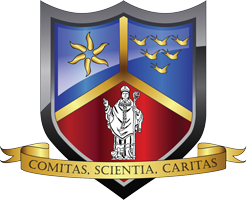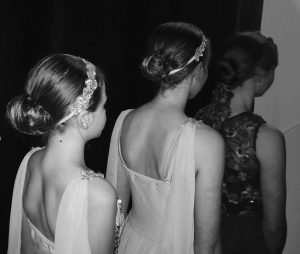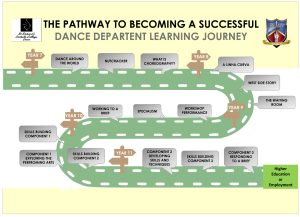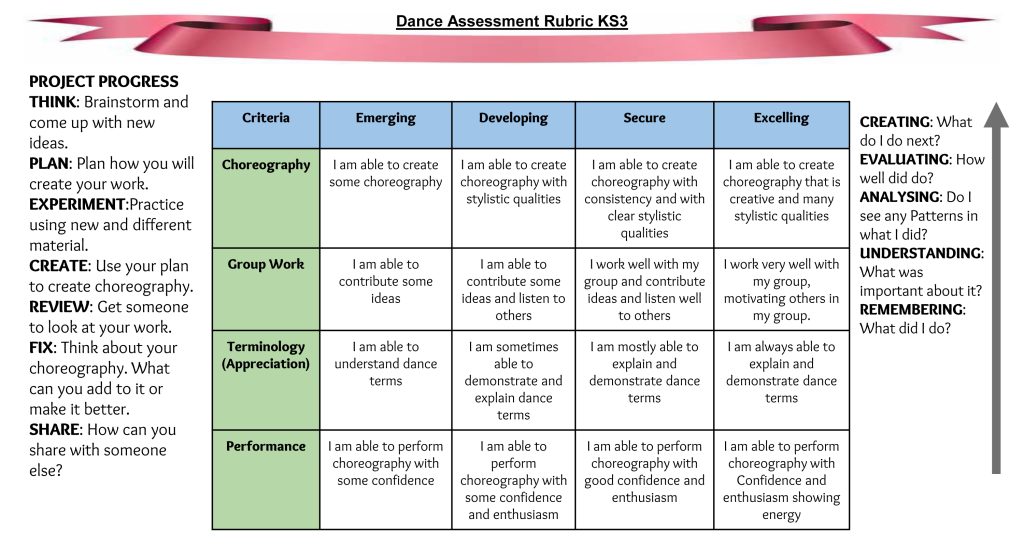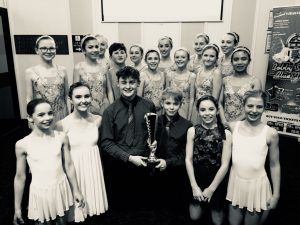Dance
Meet the department
- Mrs Knight
Dance allows pupils to work collaboratively in order to imaginatively develop and challenge their own knowledge and understanding and that of others. We do this by listening to, and discussing, all their ideas before exploring them in a practical setting. Thus participation in dance lessons promotes social inclusion as well as allowing pupils to acquire a diverse range of skills. The true value of dance can be seen in its ability, as a physical medium, to break down the boundaries that constrain almost all other areas of the curriculum and allow everyone to become involved through its diverse scope for individual expression.
Aims: Our aims in teaching Dance are that the pupils will:
- Enjoy the subject and study it with a sense of achievement.
- Develop an understanding and appreciation of a range of dance skills and styles.
- Develop and extend their own interests and abilities.
- Develop the confidence to express ideas and communicate them through dance.
- Have opportunities for presenting performances, both individually and in groups.
- Evaluate their own and others’ contributions to dance and suggest improvements.
The KS3 through to KS4 is a curriculum programme that includes choreography, improvisation, performance, dance technique and analysis of professional works.
Pupils have regular opportunities to participate in theatre trips and workshops with professional practitioners. One of the key aspects of the department is that we believe that feedback and refinement is a key to pupils’ success and pupils are asked to push themselves to reach goals and to exceed their own expectations.
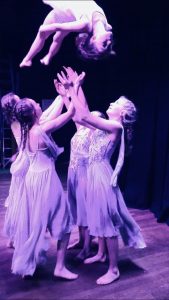 Career opportunities are wide ranging and not limited to becoming a professional dancer (which is not only difficult but can be very short lived). Some careers involved in the field of dance include:
Career opportunities are wide ranging and not limited to becoming a professional dancer (which is not only difficult but can be very short lived). Some careers involved in the field of dance include:
- Choreographer
- Dance Teacher
- Dance Critic
- Costume Designer
- Set Designer
- Arts Administrator
- Yoga or Pilates instructor
- Dance photographer
- Physical Therapist/Dance Medicine Specialist
BTEC Performing Arts EXAM RESULTS
BTEC Tech Award in Performing Arts Level 1/2.
June 2023
Distinction – 44%
Merit – 77%
Level 2 Pass – 100%
Key Stage 3
KS3 pupils’ enjoy a practical experience of dance giving them a solid foundation of key skills. The KS3 dance curriculum allows pupils to explore many different styles of dance, as well as developing skills in choreography and performance, building on technique. It is taught in mixed ability classes, both working in small groups and individually, alternating on a termly rota with Drama.
Pupils in Year 9 opt for subjects of interest and, as part of this mini-option process, are offered a Performing Arts Course which includes music, dance and drama. The work involves creating their own musical which culminates in a showcase at the end of Year 9.
Key Stage 4
The Key Stage Four curriculum follows the BTEC Level 1 and 2 Technical Award Dance or Production Pathway. The Technical Award in Performing Arts aims to give pupils the chance to acquire technical skills through studying dance. Additionally, the course enables learners to develop attributes that are considered important in the commercial world, such as communication and personal management, whilst embedding a knowledge around roles, responsibilities, performance disciplines, the creative process and performance styles.
Assessment takes place over the two years of study both practically by the teacher and through the compilation of evidence in a portfolio. Assessment is 100% coursework, with no written exam, and includes a unit which is externally set and assessed.
The course is divided into 3 components:
Component 1: Exploring the Arts – studying the industry, engaging in activities and events, meeting practitioners and taking part in and leading workshops (30% and assessed by teacher)
Component 2: Developing skills and techniques in the Performing Arts – creating and performing an original piece within the context of Dance or Production (30% and assessed by teacher)
Component 3: Set task – performing to a brief/stimulus set by Pearson under supervised conditions over an allotted period of time (40% and externally assessed)
GCSE Dance
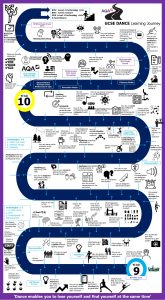 The programme has a practical focus on the three main areas: performance, choreography and dance appreciation.
The programme has a practical focus on the three main areas: performance, choreography and dance appreciation.
-
Performance: students will have the opportunity to perform as a soloist and in a duet/trio. They will gain knowledge and understanding of the physical, technical, and expressive skills for performance alongside safe working practices.
-
Choreography: students learn how to respond creatively to an externally set stimulus to choreograph their own dance. Students learn the impact of aural settings on the mood and atmosphere of a piece of choreography and its relationship to theme/idea.
-
Dance appreciation: students learn to critically analyse and evaluate their own performance and choreographic work using appropriate terminology. Students also learn to critically appreciate six professional set works from the GCSE Dance Anthology. These are:
-
Artificial Things – Lucy Bennett
-
A Linha Curva – Itzik Galili
-
Infra – Wayne McGregor
-
Shadows – Christopher Bruce
-
Within Her Eyes – James Cousins
-
Emancipation of Expressionism – Kenrick H2O Sandy
Assessment Written examination: 40% Practical: 60%
Component 1: Performance and choreography
-
Set phrases through a solo performance of approximately one minute in duration
-
Duet/trio performance (three and a half minutes duration)
-
Solo or group choreography
-
This is internally marked within school and externally moderated by AQA.
Component 2: Dance appreciation Written examination 1 hour 30 minutes
-
Knowledge and understanding of choreographic processes and performing skills
-
Critical appreciation of own work
-
Critical appreciation of professional works
Assessment
At KS3 pupils are practically assessed on performance, knowledge and understanding, choreography, safe dance practice along with their evaluating skills. In KS3, all pupils are set an aspirational target level that is based on their KS2 average point score and other relevant data. Pupils are expected to achieve this grade and will be supported to do so.
Dance Assessment Rubric
At KS4, pupils are set an aspirational target grade based on Fischer Family Trust and our own internal assessment data. Pupils are expected to achieve this grade and will be supported to do so. Work is marked using grades at KS3 and BTEC grades at KS4. Coursework is marked according to exam board mark schemes.
Dance Company
The Dance Companies have over 100 members with both a Dance Company and Boys’ Dance Company and who continue to be successful at local, county and national level. As a company they annually take part in The Great Big Dance Off, Time to Dance and the school productions, which are a collaboration of the performing arts subjects, and at many local charity and schools events. Each year they work with professional providers such as Ascension, Hofesh Shechter Company, Trinity Laban and Move It. As well as attending workshops, pupils have opportunities to attend professional company performances. The liturgical life of the college is an integral part of the Dance Company, who enhance services and Masses throughout the academic year both in the school and in the wider community.
The Centre for Advanced Training (CAT) at Trinity Laban is an innovative scheme offering young people with exceptional talent and potential in dance the opportunity to access high quality dance training. The programme of classes provides intensive and rigorous dance training taught by a highly experienced team of professional dance teachers and artists. CAT is part of a national programme funded and developed by the Department for Education, Music and Dance Scheme. More information on the scheme can be found via the following link: https://www.trinitylaban.ac.uk/study/dance/centre-for-advanced-training.
We currently have 6 pupils attending the CAT scheme
Extra-Curricular Activities in Dance
Extra Curricular
The dance department run a number of extra-curricular activities after school. A timetable of clubs is available on the website and is updated each term.
The Dance Company hold rehearsals every night after school.
